The Hispanic Center of the Lehigh Valley and St. Luke’s University Health Network developed a partnership in an effort to educate the community about COVID-19 and its vaccine.
The Hispanic Center Lehigh Valley was one of 150 community-based nonprofit organizations, known as CBOs, awarded a COVID Confidence Grant by the CDC Foundation after a competitive application process, said Victoria Montero, interim director of the Hispanic Center.
The funding from the CDC goes toward a project with different components that meet community needs, especially in Bethlehem’s Southside. One goal is bringing the COVID-19 vaccine to the community.
St. Luke’s University Health Network, based in Bethlehem, is a nonprofit network of 12 hospitals, more than 300 outpatient sites and more than 16,000 employees.
Rajika Reed, vice president of Community Health at St. Luke’s, has worked in collaboration with the Hispanic Center to inform at-risk populations in the Lehigh Valley about COVID-19 and the vaccine. Reed said it is exciting for smaller organizations like the Hispanic Center to have such an important grant from the CDC.
“Working with a trusted partner like the Hispanic Center, we were able to address the needs of our most vulnerable folks in the community,” Reed said. “That really is, when you think about public health, that’s a pretty standard strategy, because you want people to feel comfortable with their care, you want to address their needs where they are, you also want to support organizations that are doing this work as well.”
Reed said that St. Luke’s Hospital has worked with community partners to ensure they reach populations impacted by COVID-19 at a disproportionate rate. She said that St. Luke’s physicians have done talks, panels and participated in bilingual programs as part of the funded project within the partnership.
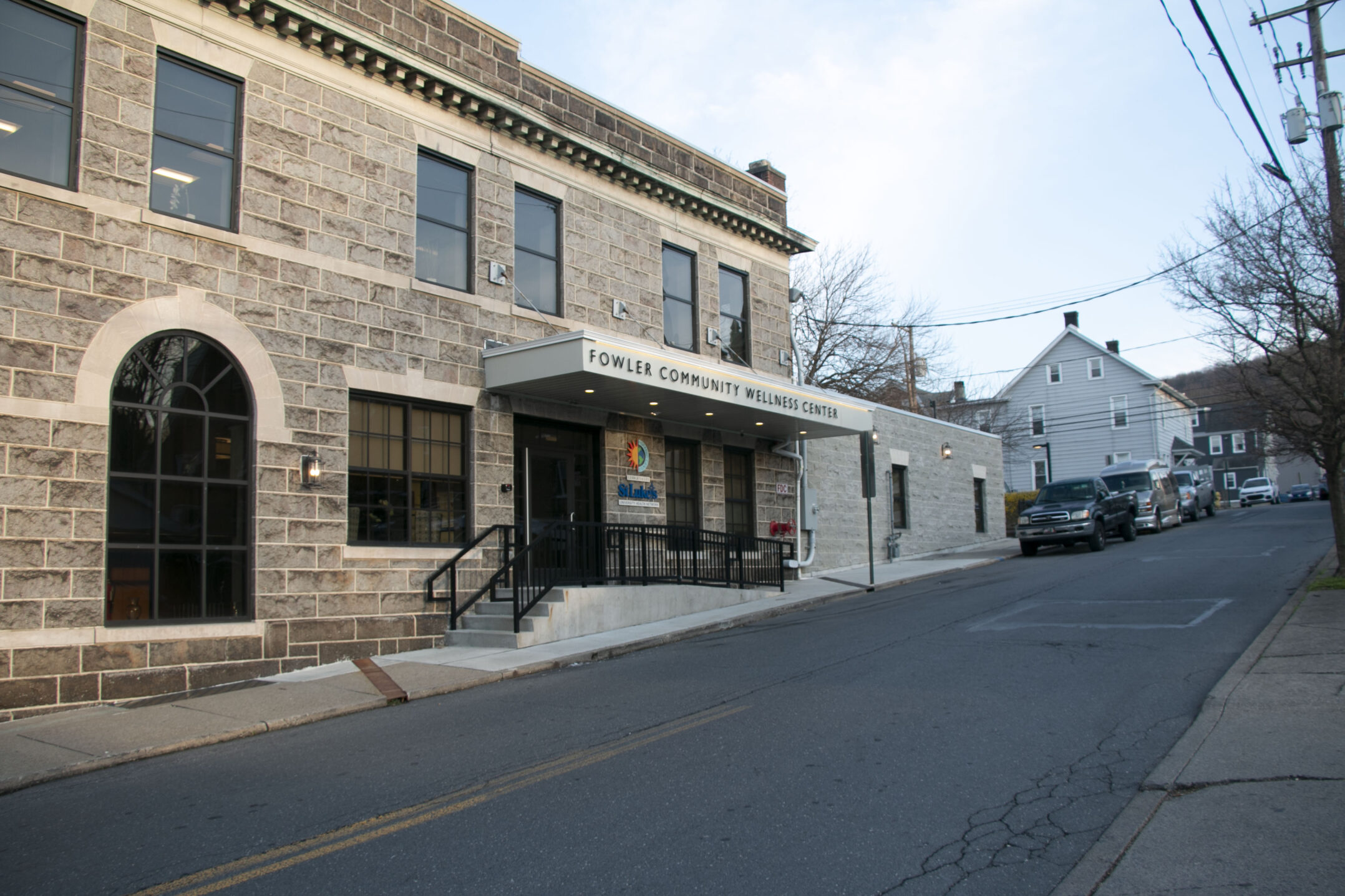
The Lehigh Valley Hispanic Center located at 520 E 4th St. As a part of the St. Luke’s University Health Network, the center focusing on using diversity as a foundation for economic vibrancy in the community. (Frances Mack/BW Staff)
“We definitely see, from a data perspective, nationally, even down to local data, we see some of our most hard hit zip codes are zip codes that have higher rates of diversity,” Reed said. “And so we’ve done everything we can similar to what we’re doing with the Hispanic Center, where we’re partnering with agencies.”
The Hispanic Center of Lehigh Valley, a nonprofit organization located on 520 East 4th St., Bethlehem, dedicates itself to bettering the lives of families in the Lehigh Valley, regardless of background,. The organization aims to foster a community of cultural appreciation and economic opportunity, according to their website.
Montero works with St. Luke’s physicians to promote education and conversation around the vaccine through her role at the Hispanic Center, according to Reed.
Montero finds the most impactful part of the St. Luke’s and Hispanic Center partnership to be the combination of expertise and community experience.
“By bringing different levels of expertise to the table into this, to fight this virus and to bring that education, the Hispanic Center brings the connection to the community — the healthcare networks, they bring the expertise from the medical field,” Montero said. “And then working with other partners, they all bring different expertise to the table, and that’s what makes the project successful.”
She said people at the Hispanic Center see that representation is necessary to generate trust. According to Montero, a level of trust that serves the mission of community health is Latino connection. The Hispanic Center holds medical clinics at various locations in the area for community members.
“(People are) frequently with physicians who look like them, and are so familiar with the culture that it’s much more comfortable to ask questions of somebody who you can identify with,” Montero said.
Montero said the spread of misinformation around the COVID-19 vaccine became a major challenge for the Hispanic Center. The center needed ways to direct community members towards reliable information.
“We saw the barriers that the Hispanic community was facing,” Montero said. “The undocumented who were afraid to go to a healthcare network because they think that they’re going to get deported. We saw the literacy gap, where someone was not able to read or write, and they don’t even know how to pick up a phone to make a phone call. They walk here, knocking on our doors, (asking) if they could get the vaccine.”
Montero said that after the vaccine was first released, she took part in direct community outreach in Allentown through mobile clinics.
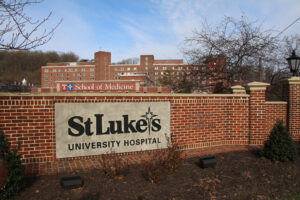
The St. Luke’s University Hospital – Bethlehem Campus. St. Luke’s has been working with the Bethlehem community to educate residents about COVID-19 and the benefits of the vaccine. (Clare Fonstein/BW Staff)
“I asked probably 100 people a few questions required for the CDC. Every single person said they were not vaccinated,” Montero said. “But we’re seeing more information being available about the vaccine now that eligibility has opened up. We’ve seen more people willing to be vaccinated.”
The Hispanic Center aims to continue working with St. Luke’s on finding creative ways to administer the vaccine, Montero said.
Rebecca Rasmuson, a local Bethlehem resident, said she felt like local hospitals did a good job laying out guidelines for the disease, as well as making vaccines available. She said she felt equipped with available resources in the community to combat COVID-19.
“(I was ready) as much as anyone could be, because nobody was really ready for that,” Rasmuson said. “Just be respectful of each other and of what everybody feels they need to do to be safe.”
Rasmuson said that fortunately, no one in her family or circle of friends became too ill, but she noticed the negative effects of social distancing and isolation, including a decline in her own mental health.
According to Montero, to combat false facts spread through media outlets such as TikTok or Facebook, another component of this project included a forum that was done with the TV channel PVS 39. On PVS 39, St. Luke’s physician Dr. Leonardo S. Claros was featured, holding community conversations on the merits of the vaccine.
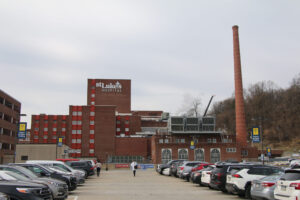
The St. Luke’s University Hospital – Bethlehem Campus. St. Luke’s has been working with the Bethlehem community to educate residents about COVID-19 and the benefits of the vaccine. (Clare Fonstein/BW Staff)
Montero said information conveyed to local families matters since family members influence one another when it comes to the information that they believe.
“That information transpires to the mom, to the dad, to the grandma and in the Latino communities (people are) all about that family relationship,” Montero explained. “So if the family member is saying, ‘Oh, we shouldn’t get vaccinated,’ now you’re going to have more family members saying the same thing.”
Montero said the Hispanic Center has also worked on a social media campaign and found trusted community members to share health information. She said their organization could potentially get another $100,000 for a second year of this project because of its success.

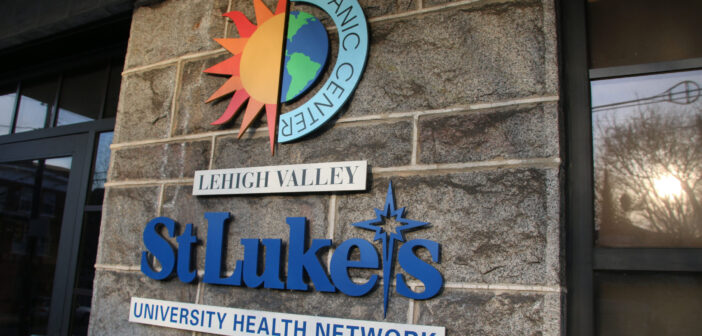



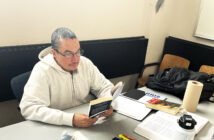
Comment policy
Comments posted to The Brown and White website are reviewed by a moderator before being approved. Incendiary speech or harassing language, including comments targeted at individuals, may be deemed unacceptable and not published. Spam and other soliciting will also be declined.
The Brown and White also reserves the right to not publish entirely anonymous comments.